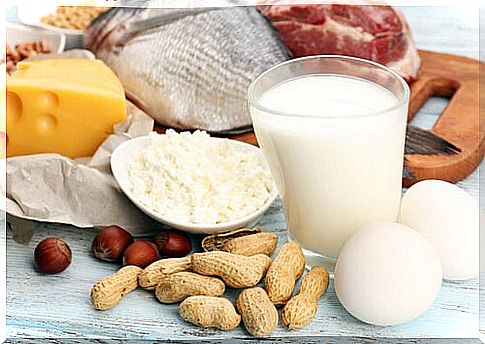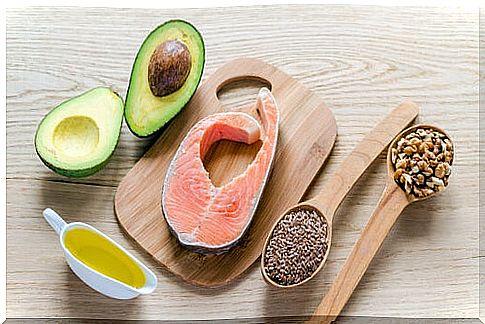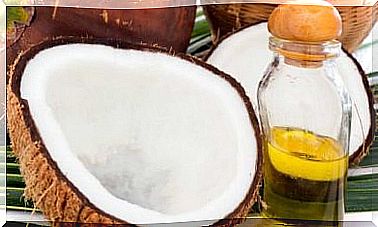8 Nutrients That Benefit The Brain. Include Them In Your Diet!
A balanced diet and the consumption of certain nutrients such as those listed below are essential to maintain good cognitive status. Are you consuming them frequently?

The brain, among other structures, constitutes the central nervous system, responsible for directing the actions and reactions of the body. Thanks to this system, it is possible to control vital activities such as digestion, breathing or the heartbeat. Therefore, it is important to provide it with the necessary nutrients for it to function properly.
Having a healthy and active brain is synonymous with a good memory, as well as being essential to prevent degenerative diseases such as dementia, Alzheimer’s, Parkinson’s or multiple sclerosis. The American Heart Association explains in a publication the importance of keeping this organ in good condition.
For the brain to function optimally, it is very important to do mental exercises and eat a healthy diet. Like other organs in the body, it requires essential nutrients to function properly.
Essential nutrients to keep the brain fit
On this occasion, we want to share with you some nutrients that can help the brain to function better and be healthier. It is essential, however, to consult a specialist if there are any symptoms of illness or if drastic changes in diet are to be made.
1. Healthy fats
Omega 3 fatty acids are a healthy type of fat that is very beneficial for the brain. This nutrient is essential for the proper functioning of cognitive processes, as explained in a 2002 study published by the Interciencia Association of Venezuela.
Among the foods rich in omega 3 fatty acids, we find:
- Salmon.
- Tuna.
- Flax.
- Chia seeds.
- Walnuts.

2. Antioxidants
As a person ages, oxidative damage increases and causes damage to different organs of the body. As the Mayo Clinic explains in one of its medical publications, antioxidants serve to curb the action of free radicals and prevent many diseases.
Among the rich sources of antioxidants, you can find:
- Blackberries.
- Broccoli.
- Carrots
- Blueberries
- Grenade.
- Citrus
- Garlic.
- Tomatoes.
- Grapes.
- Whole grain cereals.
3. Proteins
Consuming protein provides the brain with an important amount of amino acids for the synthesis of neurotransmitters. Therefore, proteins are key nutrients for the proper functioning of the brain, and this is confirmed in a study by the Institute of Medicine (US) Committee on Military Nutrition Research .
You can consume protein through:
- Dairy products.
- Eggs.
- Fish and shellfish.
- Meats.
- Soy.
4. Water
Much of the human body is made up of water, and the brain is no exception. It is scientifically proven that the slightest bit of dehydration can affect cognitive ability, concentration and, in fact, can compromise memory. The British Journal of Nutrition addressed the relevance of water to the brain in a 2014 study.
5. Vitamins and minerals, essential nutrients
Vitamins and minerals are essential nutrients for the proper functioning of the body. When a person suffers some type of deficiency of these nutrients, neurological alterations can appear.
A specialized medical publication from Harvard Medical School states that, despite the fact that many supposed benefits of vitamins for brain health were not proven – the one that gathers the most evidence is vitamin E -, the lack of, for example, the vitamins of the group B may influence the future appearance of cognitive diseases.
Although these can be consumed as a supplement, the ideal is to do it through food, consuming fruits, vegetables and cereals. If symptoms of a possible vitamin or other nutrient deficiency appear, it is appropriate to consult your doctor. The patient should not supplement on his own.

6. Coffee
The consumption of coffee is beneficial for brain health, since this food contains a significant amount of antioxidants and bioactive compounds that can prevent damage to the brain. A study in the Journal of Alzheimer’s Disease confirms these properties.
7. Whole grains
Whole grains contain folic acid and vitamin B6, the lack of which can be harmful to the brain, as the studies cited above claim. You can increase the consumption of whole grains through wheat, barley, rice, corn, oats, rye, quinoa, buckwheat, sorghum or millet, among others.
According to a study carried out at the Wake Forest School of Medicine – North Carolina, United States – the consumption of whole grains is good for brain health, since it could reduce the risk of suffering a stroke.
8. Zinc
According to a 2005 study published in Progress in Neurobiology, zinc serves various functions in maintaining good brain health. The main sources of zinc are meats – red, lamb, pork, chicken, or fish -, nuts, whole grains, and lima beans.
Nutrients for the brain: conclusion
As we recommend before, all symptoms related to a possible illness should be treated by a doctor. Also, if you are going to make changes to your diet, try to have the supervision of a nutritionist.
Having said that, you can try incorporating foods that contain these nutrients into your diet; all are beneficial for brain health, so take advantage of them!








